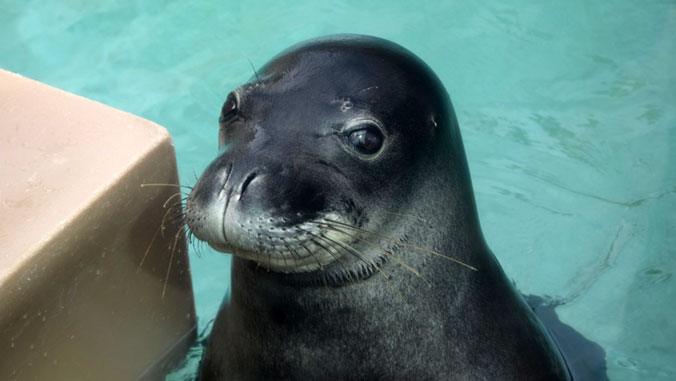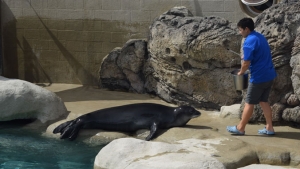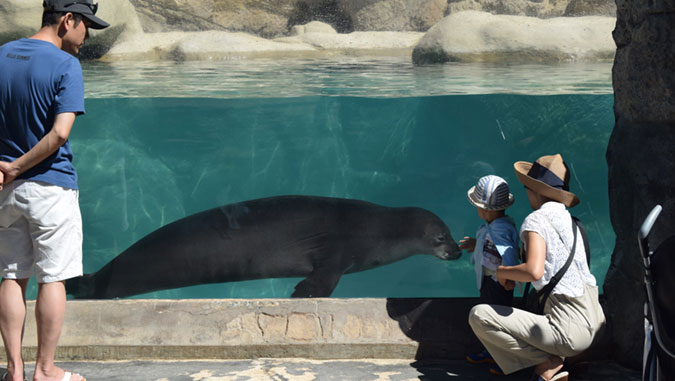
To further study the unique physiology and sensory biology of endangered Hawaiian monk seals, marine mammal scientists at the University of California Santa Cruz are partnering with Hawaiian zoological facilities Waikīkī Aquarium and Sea Life Park on Oʻahu. The aquarium is a University of Hawaiʻi at Mānoa research facility.
Specialized research programs and marine mammal facilities available at University of California Santa Cruz’s Long Marine Laboratory have enabled several important studies to be completed with the species since 2009.
The next phase of research will include the return of 19-year-old Hawaiian monk seal KE18 from California to Sea Life Park where he will be featured in educational programming highlighting the endangered status of the species and the value of collaborative conservation research. Meanwhile, Waikīkī Aquarium will temporarily transfer 13-year-old male Hawaiian monk seal KP2 to the research program in California while the monk seal exhibit at the aquarium is updated and renovated.

“The Waikīkī Aquarium is grateful for this opportunity to work closely with the University of California Santa Cruz and its partners to support conservation efforts for Hawaiian monk seals and education about this endangered species,” said Andrew Rossiter, director of the Waikīkī Aquarium. “This will allow us to renovate our monk seal exhibit so we can continue to help in future research and protection efforts.”
KP2 previously spent several years at Long Marine Laboratory participating in cooperative research. His planned sabbatical will allow scientists to support ongoing studies of auditory biology and provide insight into how monk seal metabolism changes throughout development.
These studies support conservation efforts for wild monk seals by providing relevant biological data from non-releasable male monk seals trained to cooperate in scientific sampling. Such information is often difficult or impossible to gather from free-ranging seals. Measurements are obtained by animal care specialists without harm to seals, and research activities are monitored by the Institutional Animal Care and Use Committee.
Research with non-releasable Hawaiian monk seals is authorized by NOAA Fisheries. The planned research activities involving monk seals KE18 and KP2 are supported by the U.S. Navy’s Office of Naval Research and Living Marine Resources Program. Multiple agencies have participated in planning vaccination and quarantine requirements, including those related to COVID-19, to ensure the health and safety of people and animals.
This partnership is an example of UH Mānoa’s goal of Excellence in Research: Advancing the Research and Creative Work Enterprise (PDF), one of four goals identified in the 2015–25 Strategic Plan (PDF), updated in December 2020.


